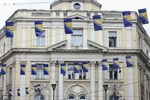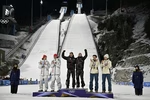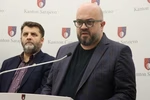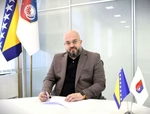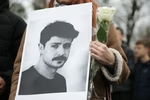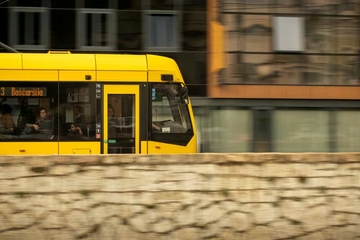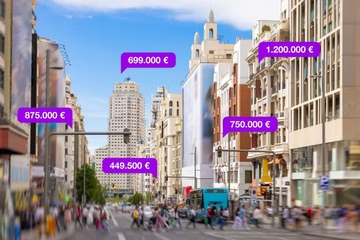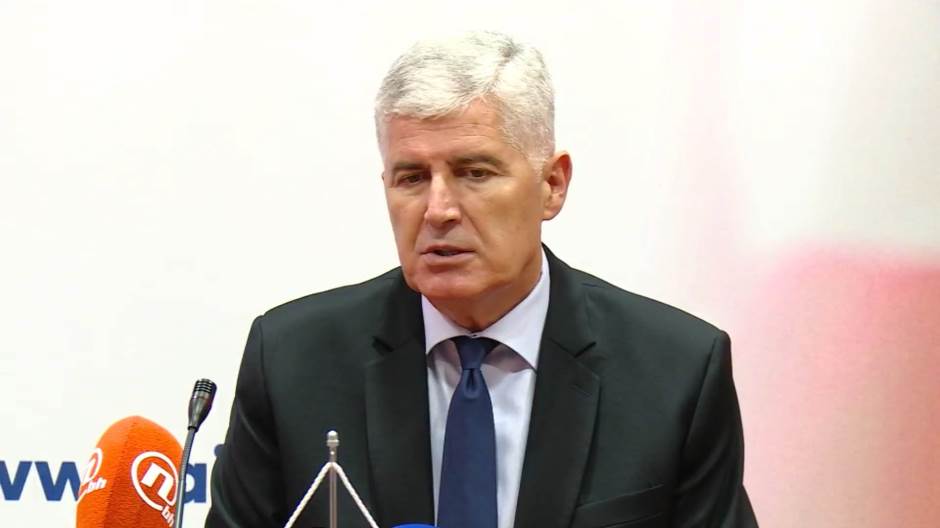
The civic state model Bosniak representatives are proposing “is absolutely inapplicable,” as it is an ethnically divided country which “can only be led through federalism,” Bosnian Croat leader Dragan Covic said on Saturday.
He was commenting on a proposal for a declaration the main Bosniak party in the country, the Party for Democratic Action (SDA), will be discussing whether to adopt at its congress later that day.
The proposed SDA declaration advocates for, among other things, a ‘Republic of Bosnia and Herzegovina’, the affirmation of a ‘Bosnian language’ as the ‘common identity of all of Bosnia’s citizens’, a reform of the police force and setting up a supreme court.
Bosnia and Herzegovina constitutionally set up with a power-sharing structure between Bosniaks, Croats and Serbs as the three constituent peoples and is territorially divided into two semi-autonomous entities - the Serb-majority Republika Srpska (RS) and the Federation (FBiH), shared mostly between Bosniaks and Croats.
“The game based on numerousness in order to secure the domination of one nation is unacceptable and risky for Bosnia and Herzegovina,” Covic told ‘Vecernji list’.
He stressed that the three constituent peoples must be equal and that without constituency and equality of Croats there is no Bosnia and Herzegovina.
“If the Croat people disappear from the political scene, I’m afraid that then the path toward the division of Bosnia and Herzegovina between the other two peoples will open up,” he said.
Covic also commented on the agreement the political leaders signed in an effort to overcome the deadlock over forming Bosnia’s government, which caused a political crisis in the country.
The reason behind the government - officially called the Council of Ministers - not being formed since the Ocober 2018 election is that the Bosniak and Croat members of the tripartite Presidency refuse to vote for the new prime minister, who is supposed to come from the Bosnian Serb ruling party.
Although the party initially agreed to Bosnia progressing toward NATO membership years ago, it now opposes any new step in that direction to be made.
The next step would be sending the Annual National Programme (ANP) to the alliance in Brussels and the Bosniak and Croat Presidency members insist on it. They argue that the country took on that obligation years ago and must fulfill it according to the law and the Constitution.
In order to overcome the deadlock, the leaders of the three parties which won the election - Bakir Izetbegovic from the SDA, Milorad Dodik from the SNSD, and Dragan Covic from the Croat Democratic Union (HDZ BiH) - signed an Agreement containing principles for forming the government.
However, the main issue - Bosnia’s relationship with NATO - was never clarified and Izetbegovic and Dodik gave completely different statements about what the Agreement said regarding it.
The one-month deadline for implementing the principles expired on September 5, but no progress was made. Bosnia’s previous government is currently in a technical mandate until the new one is formed.
Covic said he does not think the agreement failed and that it is necessary to create an atmosphere for it to be fully implemented.
“After the agreement was reached, the Bosniak policy, from Sarajevo, stepped out and created the crisis with the belief that they will score points like that. They expected strong reactions which never came,” he said.
“Now they’ve got nothing left but forming the government,” he added.
Conditioning the forming of the government with sending the ANP is only a tool for blocking, as that is a technical issue which is being portrayed as a political one, he said.
The HDZ BiH is and will keep leading a policy which is balancing between the policies of Sarajevo and Banja Luka - the administrative centre of the RS, he said.
Kakvo je tvoje mišljenje o ovome?
Učestvuj u diskusiji ili pročitaj komentare





 Srbija
Srbija
 Hrvatska
Hrvatska
 Slovenija
Slovenija








